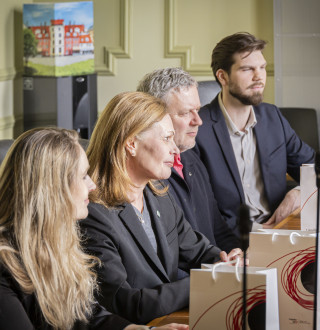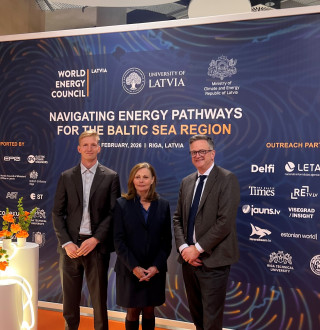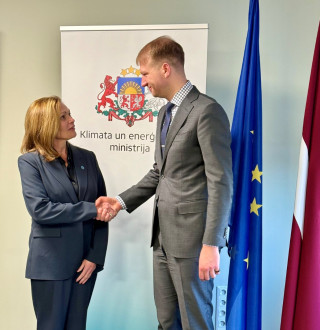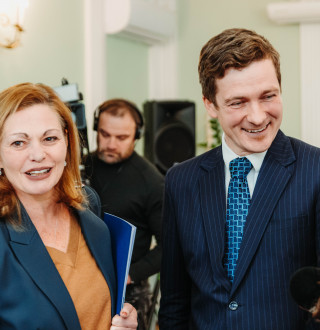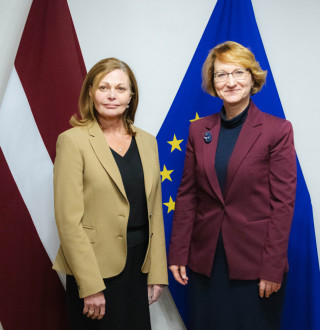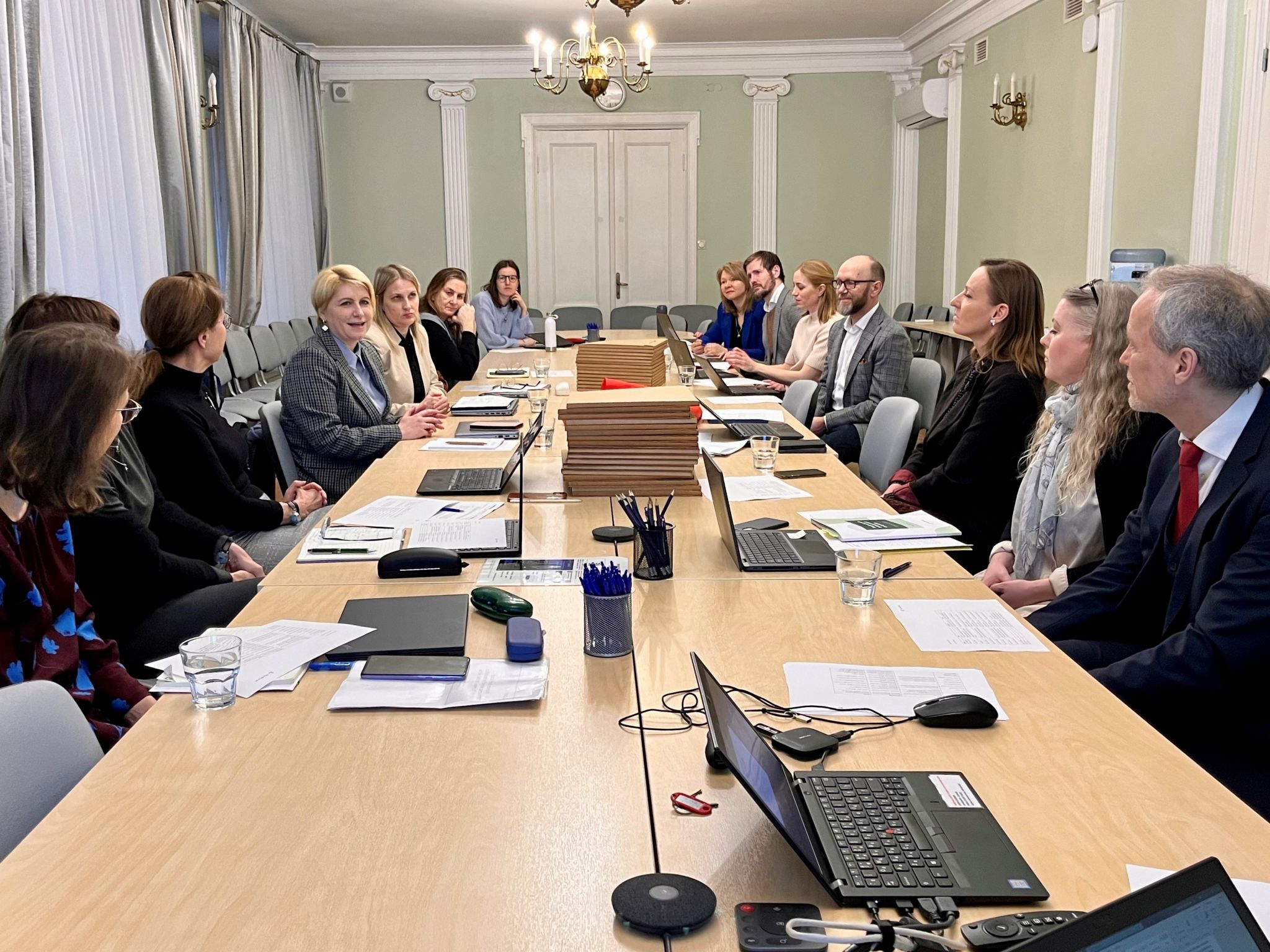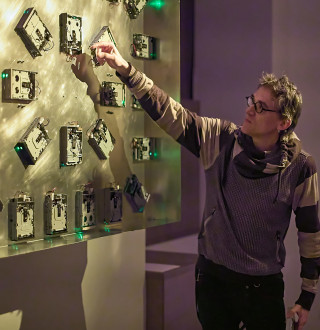On 24 January, representatives of Latvia and Norway met at the Ministry of Education and Science of the Republic of Latvia to discuss the opportunities provided by the Norwegian and EEA grants for Nordic-Baltic cooperation in research and the added value of the regional cooperation.
The meeting was opened and chaired by Arne Flåøyen, Director of NordForsk. NordForsk is an organisation under the Nordic Council of Ministers that provides funding for and facilitates Nordic cooperation on research and research infrastructure. Latvia was represented by several members of the Department of Higher Education, Science, and Innovation of the Ministry of Education and Science and representatives of the Latvian Council of Science and the University of Latvia. Researchers and experts from the Research Council in Estonia, Lithuania, and Norway, as well as representatives from the Nordic Council of Ministers’ offices in all the Baltic States also participated.
Participants discussed the added value of Baltic-Nordic research cooperation projects. The added value of such cooperation is invaluable and among other things it helps to strengthen the perception of the Nordic and Baltic countries as unified region, and to improve the exchange of knowledge and experience between researchers and institutions on a wider scale. The workshop also included practical group work with participants discussing the funding opportunities from Norway and various EU funding options. Other topics were the efficiency of funding administration, local challenges for researchers, and added value of regional research.
The experts also discussed the impact of Nordic-Baltic research cooperation on society as a whole, strategy behind the regional cooperation and benefits to society. NordForsk will summarize the insights from the workshop in a paper that can be used in the dialogue between national and international bodies about future Baltic–Nordic research collaboration.
Inta Mieriņa, Associate Professor at the University of Latvia, shared her experience of participating in the Nordic-Baltic research project. A representative of the Estonian Research Council spoke about regional cooperation from the perspective of national funders, and Birgit Jacobsen, Senior Researcher at the Research Council of Norway, spoke about EEA and Norway grants and the first Baltic Regional Research Programme.
This meeting is an example of practical multilateral gain as fo signing the agreement between the Ministry of Education and Science of the Republic of Latvia and the Nordic Council of Ministers in 2012 on cooperation on the development of Latvian system of science.
Main takeaways
The national funders in the Baltic countries are very positive towards increased cooperation with the Nordic countries under NordForsk, which can lead to:
- improved access to funding and resources, as it is complementary to national research initiatives and EU initiatives,
- enhanced research quality, relevance, and increased competitiveness and chances for success in EU calls,
- new knowledge on societal challenges in the Nordic and Baltic countries that can impact policy development,
- high level dialogue on research policy and strategic priorities,
- sharing best practices in research funding processes,
- stronger links between research and innovation, facilitating collaboration with industry and public sector within certain areas,
- reduced administrative burdens and cost efficiency,
- increased mobility, knowledge sharing, especially important for early career researchers,
- important knowledge exchange and collaboration in times of political instability and financial challenges,
- increased intra-Baltic collaboration.
The Nordic countries and the Baltic countries have similar societies and ways of living. There are similar societal structures and geographic proximity. This makes it easier to collaborate with the Nordics, as compared to southern European countries. A priority for Latvia is security, cyber security, and critical infrastructure. Cyber security is also as part of AI. The Baltic countries well advanced in technology and would welcome collaboration with the Nordics via NordForsk on AI in research funding.
NordForsk was established in 2005 by the Nordic Council of Ministers for the purpose of strengthening Nordic research. NordForsk’s key stakeholders comprise the national research councils, universities, and other research-funding bodies. It brings together national research groups and promotes research activities of the highest scientific quality. NordForsk seeks to enhance the quality, impact, and efficiency of Nordic research cooperation, thereby helping the Nordics to become the global leader in research and innovation.
More about NordForsk and its grants: https://www.nordforsk.org/
